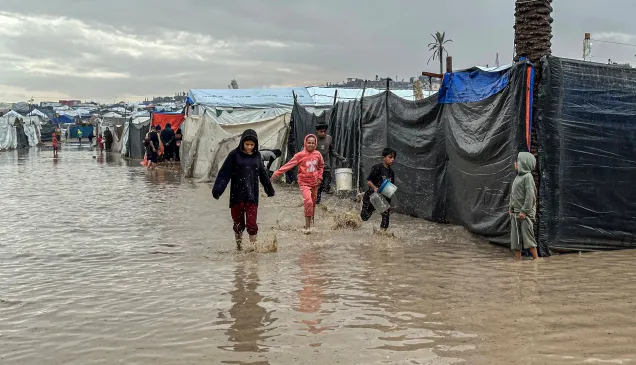Gaza: When Two Hours Became Three Weeks
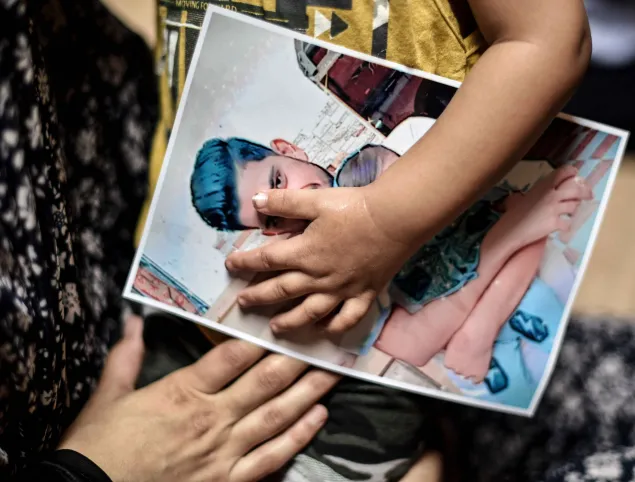
“Mohammad is my eldest son. He’s a fisherman and the breadwinner of the family. He was arrested while fishing in the sea at the beginning of the year. I haven’t managed to see him until recently,” says Hanan Al-Silawi, 55, a mother of seven girls and three boys. “A call from the ICRC revived my hope that I will see Mohammad. I was told that I will be able to visit him on 02 August, together with his son. I spent the whole night preparing clothes and recent photos of the family,” she adds.
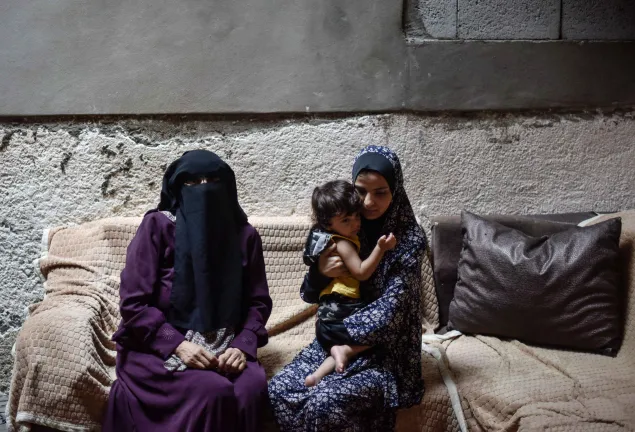
Hanan sitting with Mohammed’s wife, Dua’, and their son, Nehad, in their home in Gaza City.
“At the break of dawn, I was at the ICRC’s office waiting to get on the bus to join the family visit. Before reaching the crossing, we were informed that the border was closed, and it wasn’t possible to carry on with the visit. Words fail to explain the disappointment I felt. I was only a couple of hours away from seeing him for the first time in detention,” she says.
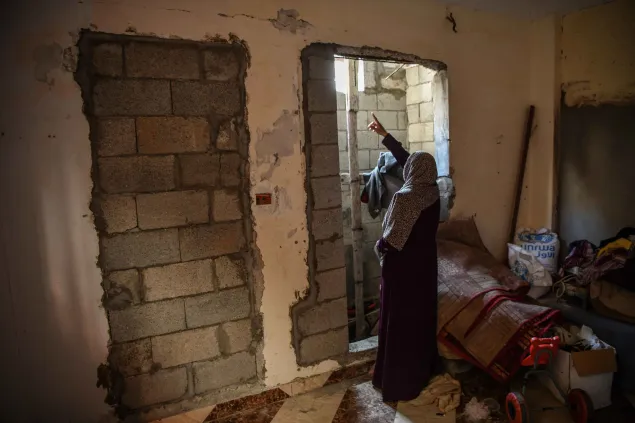
Hanan standing in Mohammed’s bedroom, which is still waiting for him to return and finish rehabilitating it.
“Four days later, there was an escalation. I was so worried and afraid to go through the same tragedy of May 2021, when an airstrike nearby destroyed half of my house. We had to move to a house rented by the authorities and live there for seven months. During that time, we were assisted by the ICRC with essential household items. Before being detained, Mohammad was trying to rebuild what had been destroyed. He managed to restore all the rooms but his bedroom. It is still there, waiting for his return,” she says.
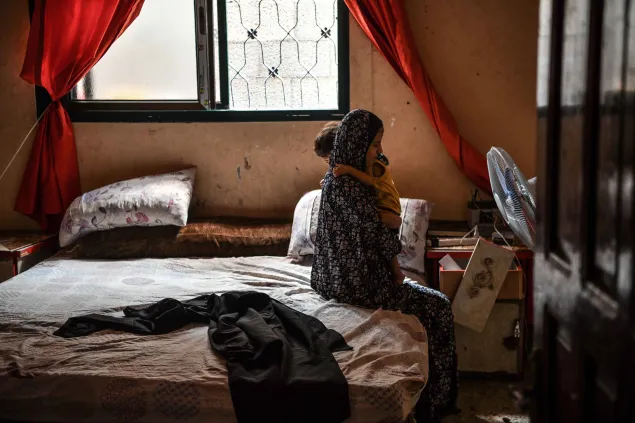
Mohammed’s wife, Dua’, and their son, Nehad, are expected to visit him in October
“Hope was restored when we heard the news about the ceasefire. We were informed that the next visit is scheduled on 23 August. I prayed day and night for the crossing to stay open. On the day of the visit, I was too excited that I couldn’t recognize Mohammad at first sight. He kept waving and jumping
when he saw me and Nehad. His wife is expected to visit him in October. I’m already counting the days to see him again,” she adds.
The ICRC visits detainees in Israeli places of detention and works to maintain family links between detainees and their loved ones through the Family Visit Program.



